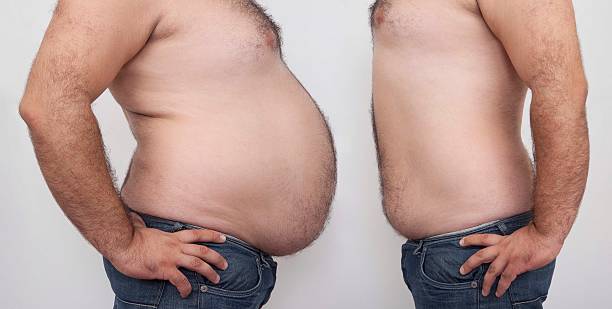Does Creatine Make You Look Fat or Just Slightly Bigger?
Does Creatine Make You Look Bigger? Everything You Need to Know
Creatine is one of the most popular and researched supplements in the fitness world, known for its benefits in boosting strength and muscle mass. But does creatine make you look bigger?
In this article, we’ll explore the science behind creatine, its effects on your body, and whether it can help you achieve a bigger and fuller look.
If you’ve been curious about how creatine supplementation affects muscle size, water retention, and overall appearance, keep reading to uncover the answers.

Article Outline
- What Is Creatine and How Does It Work?
- Does Creatine Make You Look Bigger Immediately?
- How Does Creatine Affect Water Retention?
- Can Creatine Make You Look Fat?
- Does Creatine Build Lean Muscle Mass?
- How Does Creatine Increase Muscle Mass Over Time?
- What Are the Benefits of Creatine for Muscle Growth?
- Does Creatine Make You Gain Weight?
- How Much Creatine Should You Take?
- Is Creatine Safe for Everyone?
What Is Creatine and How Does It Work?
Creatine is a naturally occurring compound found in small amounts in foods like meat and fish. It plays a crucial role in the production of adenosine triphosphate (ATP), which fuels muscle contractions during high-intensity exercise.
When you take creatine supplements, you saturate your muscles with creatine phosphate, allowing your body to create more ATP. This leads to improved performance, strength, and the ability to push harder during workouts.
Creatine works by increasing muscle creatine levels, enabling your muscles to repair and rebuild bigger and stronger after exercise. This process contributes to muscle growth over time.
Learn more about how creatine works in our Creatine Supplements Ultimate Guide.

Does Creatine Make You Look Bigger Immediately?
When you first start taking creatine, you might notice an initial weight gain. This is primarily due to water retention within the muscle cells.
Creatine pulls water into your muscles, making them look bigger and fuller. However, this effect is not fat gain but rather increased hydration within the muscles.
If you’re looking for a supplement that enhances muscle size quickly, creatine is one of the best options. The slight increase in weight is a sign that your muscles are absorbing creatine and storing more water, which can give a slightly bigger appearance in the short term.
Want to know more?
Read about Creatine Monohydrate Gummies and how they compare to other forms of creatine.
How Does Creatine Affect Water Retention?
One of the common side effects of creatine is water retention. This occurs because creatine increases the amount of water stored within the muscle cells. While this can make your muscles look bigger, some people mistake this for fat gain.
Water retention is a natural part of creatine supplementation and is often viewed as a positive outcome.
By hydrating the muscle cells, creatine improves their functionality and helps you perform better during workouts. This effect is temporary and will subside if you stop taking creatine.
For a comparison of creatine formats, check out Creatine Powder Vs. Pills.
Can Creatine Make You Look Fat?
No, creatine does not make you look fat. While it can cause a slight increase in weight due to water retention, this weight gain is within the muscle cells rather than fat storage.
In fact, creatine can help you build muscle mass, which improves your overall body composition rather than increasing body fat.
If you take creatine and don’t work out, the water retention might make you feel bloated.
However, with consistent training, creatine’s effects on muscle size and strength will outweigh any temporary bloating. Curious about common misconceptions?
Read our Creatine Supplements Ultimate Guide.

Does Creatine Build Lean Muscle Mass?
Yes, creatine supplementation is highly effective at building lean muscle mass. By providing your muscles with additional energy, creatine allows you to lift heavier weights and perform more reps during workouts.
Over time, this leads to greater muscle growth and improved strength.
Research has shown that supplementing with creatine can increase muscle mass and strength significantly compared to training without it.
The lean muscle mass gained through creatine use helps improve overall athletic performance and physique.
Explore more in our guide to Creatine Monohydrate Gummies.
How Does Creatine Increase Muscle Mass Over Time?
Creatine increases muscle mass by enhancing your ability to perform intense workouts and recover faster. During high-intensity exercise, your muscles rely on ATP for energy.
By supplementing with creatine, you boost your muscles’ ability to regenerate ATP, allowing you to train harder and longer.
This increased workout capacity leads to more significant muscle fiber activation, repair, and growth.
Over time, this results in greater muscle size and strength, contributing to long-term improvements in physique and performance.

What Are the Benefits of Creatine for Muscle Growth?
The benefits of creatine for muscle growth are well-documented. Here are some of the key advantages:
- Increased Strength: Creatine enhances your ability to lift heavier weights and perform explosive movements.
- Greater Muscle Mass: Regular creatine use leads to a noticeable increase in muscle size and strength.
- Improved Recovery: Creatine helps repair and rebuild bigger and stronger muscles after intense workouts.
By improving your performance during training, creatine allows you to achieve greater muscle mass and strength over time.
Learn more about the Creatine Supplements Ultimate Guide.
Does Creatine Make You Gain Weight?
Creatine can cause a slight increase in weight, but this is not due to fat gain. The weight gain comes from increased water retention within the muscle cells and, over time, greater muscle mass.
If you’re worried about weight gain, it’s important to remember that creatine helps you build lean muscle mass rather than body fat.
The benefits of increased strength and muscle size far outweigh the temporary weight gain associated with water retention.
How Much Creatine Should You Take?
The recommended dose of creatine is typically 3-5 grams per day. Some people choose to start with a loading phase, taking 20 grams of creatine per day for 5-7 days, followed by a maintenance dose of 3-5 grams per day.
Taking Creatine Monohydrate Gummies—the most researched and effective form of creatine—is a convenient way to ensure you’re getting the full benefits of creatine supplementation.

Is Creatine Safe for Everyone?
Creatine is one of the safest and most studied supplements available. For most healthy individuals, creatine supplementation has no significant side effects.
However, it’s always a good idea to consult with a healthcare professional before starting any new supplement.
Key Takeaways
- Creatine can make you look slightly bigger due to water retention within the muscle cells.
- It helps build lean muscle mass and increase strength over time.
- A typical dose is 3-5 grams daily.
For more details, visit our Creatine Supplements Ultimate Guide.
For More Training Advice + Diet and Lifestyle visit us Combat Creatine
PS: Make sure you check out the rest of our Creatine Guides:
Creatine
Can You Take Creatine Without Working Out?Can You Mix Collagen and Creatine in One Drink?What Happens When You Stop Taking Creatine
The Impact of Alcohol and Creatine












